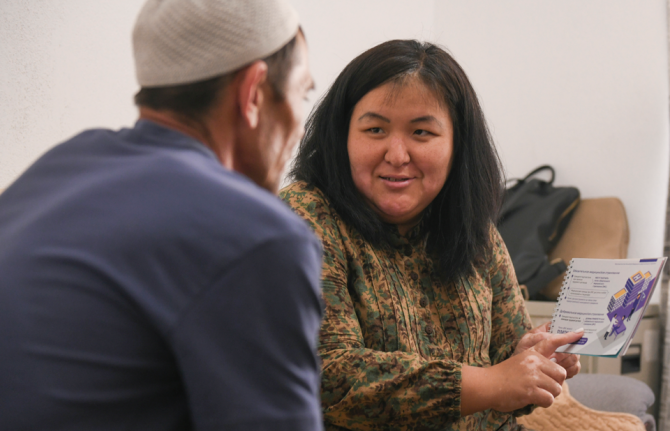
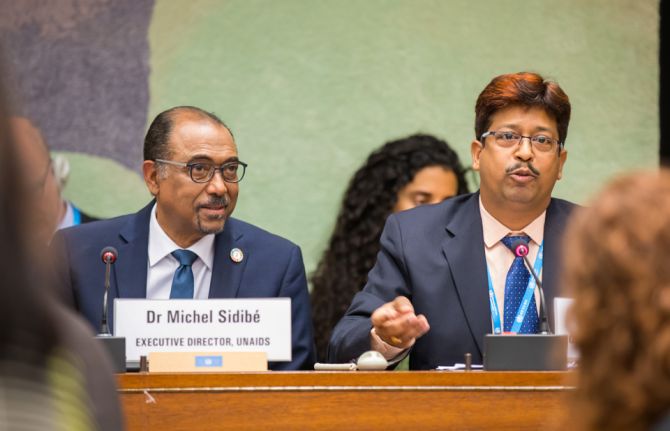
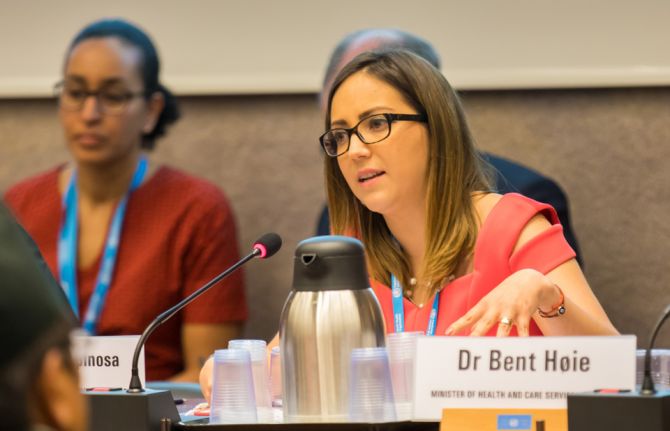
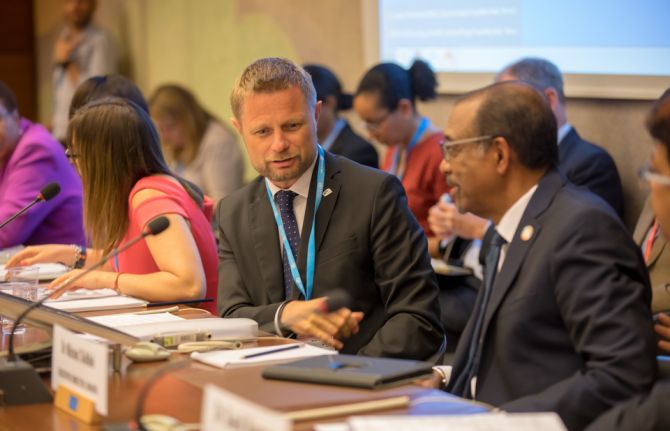
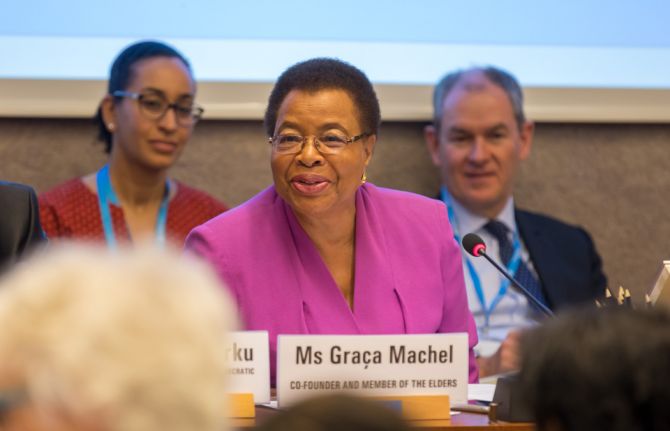
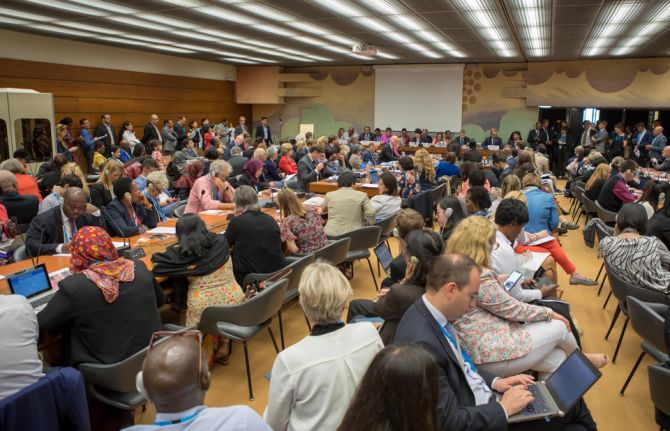
Feature Story
Health is made at home, hospitals are for repairs
22 May 2018
22 May 2018 22 May 2018Calls to increase the number of trained and paid community health workers and reach more people with primary health care have been made for decades. However, countries are still struggling to expand the number of health workers serving in their own communities. This is despite overwhelming evidence of the gains made through such programmes in improving overall health, particularly maternal health and child health.
Rwanda’s investment in a combination of community-based insurance and community health workers led to the lowest maternal mortality in history for the country, showing that investments save lives.
“Africa bears 25% of the global disease burden, but has barely 3% of all health workers,” said Michel Sidibé, Executive Director of UNAIDS. “We need a shift in perspective to invest in community health workers to ensure healthy families and health security and to reach the people left behind.”
Forty years after the Declaration of Alma-Ata, which identified primary health care as the key to attaining health for all, global health leaders came together at an event to promote the effectiveness of community health workers by sharing their experiences and looking at ways of advancing the agenda on a global scale.
The event, convened by Ecuador and Ethiopia, was held on the sidelines of the 71st World Health Assembly in Geneva, Switzerland, on 21 May and joined together community health workers, ministers of health, programme managers, the Director-General of the World Health Organization, Tedros Adhanom Ghebreyesus, Graça Machel, a co-founder of the Elders, and Mr Sidibé.
Sunil Kumar, a community health worker in India, gave his account of how important medical services are to people in remote communities. He explained how he managed to reach a pregnant woman in a remote area of India in the rainy season. Despite a dangerously overflowing river, he and his colleague went the extra mile to ensure that her baby was delivered safely—a stark reminder of the unique added value of community health workers.
The Ministers of Health of Ecuador, Ethiopia and Namibia and the Permanent Secretary of the United Republic of Tanzania talked about the successes and challenges they are facing in trying to expand the number of community health workers in their countries.
The State Minister of Health of Ethiopia shared a successful model that has been scaled up in the country. Ethiopia now has more than 38 000 paid and trained health extension workers following the 2004 launch of the health extension programme, financed by a mix of government and international donor funds. The programme has made significant contributions to declines in maternal mortality, improvements in hygiene and sanitation and a reduction in major communicable diseases.
“We are seeing momentum for universal health coverage,” said Mr Tedros. “Primary health care is both promotion and prevention and community health workers are the backbone.”
In July 2017, the African Union Commission launched an initiative to recruit, train and deploy 2 million community health workers by 2020, an initiative championed by UNAIDS. UNAIDS, in close collaboration with the World Health Organization and the United Nations Children’s Fund (UNICEF), recently supported the African Union Commission to undertake the first stocktaking exercise on the status of community health workers across the whole of Africa. The findings and recommendations will be submitted to heads of state during the African Union Summit in June 2018. UNAIDS is supporting countries to implement this important initiative.
Although positive steps have been made, many countries are still struggling to scale up. “In Namibia, we adopted the Ethiopian model, as it has been so successful,” said the Minister of Health of Namibia. “We trained 2000 people, which is small for a population of 2.3 million, and not all have been deployed due to budget cuts, inefficiencies and fraudulent use of resources.”
Other challenges cited by the speakers include transport issues, a lack of technology and communications support, such as smart phones, and political leadership at the very top levels.
“Health systems need to be built from the bottom up,” said Bent Høie, Norwegian Minister of Health and Care Services. “And that starts with community health workers.”
Stefan Swartling Peterson, Chief of Health at UNICEF, embodied the sentiment of the meeting by sharing a saying his professor, Francis Omaswa, former Minister of Health of Uganda, often reminded him of, “Health is made at home, hospitals are for repairs,” and stressed that community health workers cannot be alone, that systems, supply chains and data management are needed to make the programmes a true success.
Urging for a global movement with every country making a commitment to increase the number of trained and paid community health workers, Graça Machel concluded by saying, “Let us not come back in 2030 and say we promised but we failed … it is not allowed.”

